2013 Honda Interstate Review - Motorcycle.com
A few years have passed since having first tested the then new VT1300 models (CR, CS, CT) from Honda, but an upcoming shootout implored a closer look at the touring model of the group, the 2013 Interstate.
This form-over-function touring-cruiser is – and surprisingly so – the only cruiser in Honda’s 2013 model lineup to come factory-equipped with hard saddlebags and a windscreen (notwithstanding the fact that Honda includes the F6B in this category). The Interstate also differentiates itself from its Sabre and Stateline counterparts by way of floorboards, a heel/toe shifter, and a large brake pedal.
Antilock brakes weren’t available when the Interstate was introduced in 2010, but the technology is an optional upgrade on 2013 models with the requisite $1k price increase, $13,240 vs $14,240. Otherwise, the Interstate is the same model it was three years ago, and in that time the bike’s base MSRP has only increased $491 ($12,749 vs $13,240).
RESEARCH: Read our review of the 2010 Honda VT1300 Stateline and Interstate
Riding the Interstate reveals “a mill that feels surprisingly potent for an engine that cranks out less than 60 hp,” says EiC, Kevin Duke. Low-end response from the 52°, liquid-cooled, 1312cc V-Twin is also impressive when passing power is needed at freeway speeds.
The Interstate excels stylistically, borrowing design elements from the successful Fury and less-well-known Sabre. Its long, flowing form appeals to our eyes, especially its artfully shaped tank, even if we’re not thrilled by the use of plastic for the fenders and engine covers.
The height of the Interstate’s windscreen is eye-level for my 5-foot-11 frame and, while it offers decent protection, it’s short enough to generate some turbulence. “Buffeting was omnipresent no matter if I sat tall in the saddle or slouched down,” says 5-foot-8 Duke. “If I owned an Interstate, I’d be forced to look to the accessory catalog or the aftermarket for a replacement.”
The stretched distance between contact patches (70.3 inches) helps provide for the Interstate’s low seat height (26.8 inches) but lends to an uncoordinated feeling at slower, around-town speeds. At quicker velocities the Interstate bends into corners confidently until giving way to its minimal cornering clearance and lightly damped suspension that allows for easy bottoming of the shocks when an unannounced bump arrives.
The latch for the Interstate’s unlockable leather-wrapped hard saddlebags is hidden from easy view, which provides some measure of security but not enough to risk leaving expensive items in the bags for long. Although not large enough to fit a helmet, the attractively styled bags provide enough storage space for a one-person weekend getaway.
COMPARISON: Read our review of the 2010 Honda Sabre
The Interstate’s curb weight of 712 pounds is a little portly considering its use of plastic body parts. The bike’s seating position seems to be designed more for boulevard profiling than travelling long distances, but its two-up amenities are even worse. Not only is the Interstate’s pillion too narrow, the seat’s rearward slope will make any passenger nervous.
Stylistically and functionally, the Interstate conveys more a confused chopper persona than that of a proper touring-cruiser. For the rider unwilling to sacrifice form for function, the Interstate is the perfect pseudo-touring-cruiser – it’s perfectly set up for day trips to a biker hangout or café, as it works well for solo, moderate-distance trips.
But if you’re looking for a machine for multi-state journeys and might want to take along a passenger, purveying windscreen and seat options from the Honda accessories catalog or aftermarket manufacturers is recommended.
More by Tom Roderick



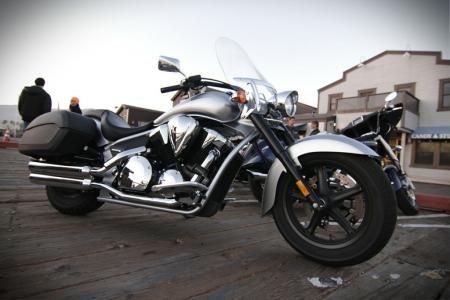




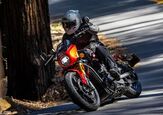
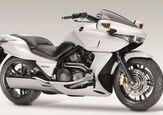
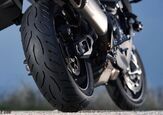
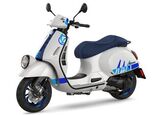
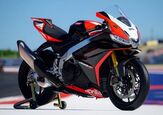
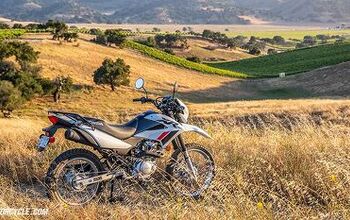
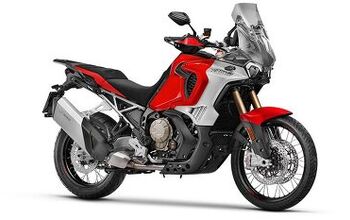
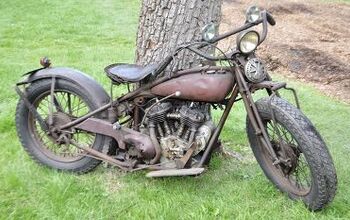
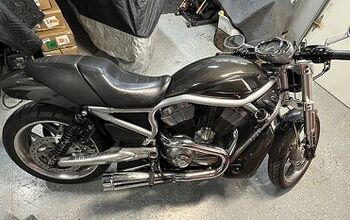


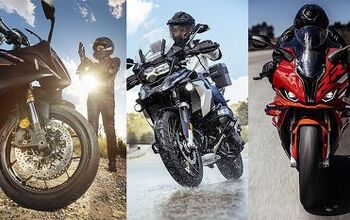
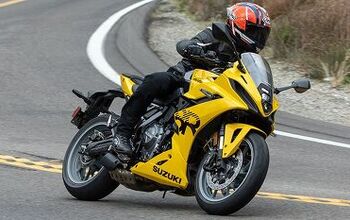
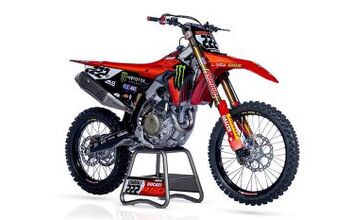
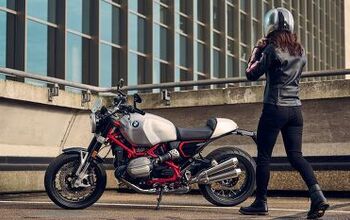

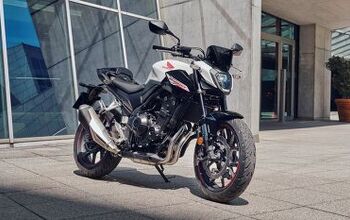
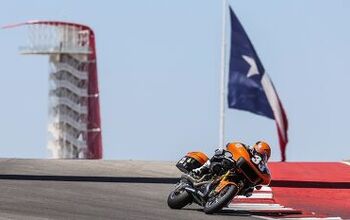



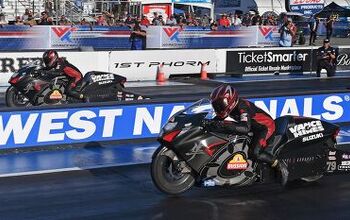
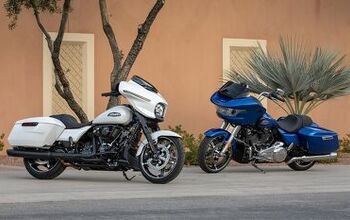
Comments
Join the conversation